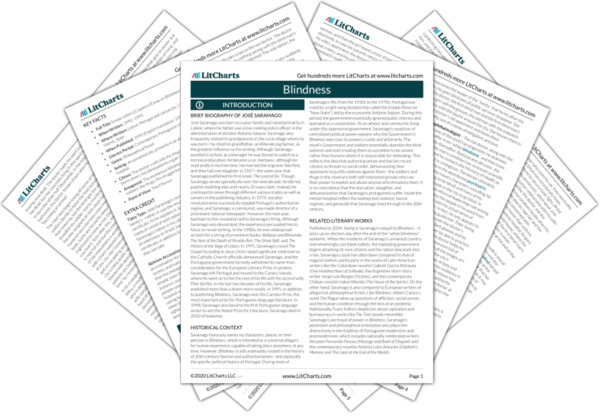The patients recognize the injustice of their situation, but more importantly, they recognize that justice is completely irrelevant to the thieves (as it is to the Government). In their moment of desperation, the ward’s residents turn to the doctor for guidance, but they fail to realize that his competence and expertise are largely the result of guidance from his wife. The doctor’s wife’s scissors, on the other hand, present an opportunity that only she can seize—the thugs have taken power simply because of their weapons, but their blindness will hinder their ability to use them. The doctor’s wife now has a tool capable of overthrowing the thugs, if she can use it correctly and build up the moral courage to act.
